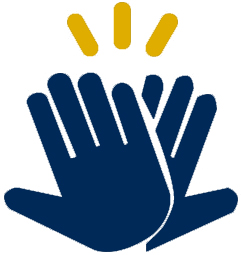 There are many definitions of imposter syndrome. The one I commonly use is a feeling of self-doubt about one’s worth, value or deserving to be in the position they are in. Further, it contributes to a feeling that one’s success is fraudulent.
There are many definitions of imposter syndrome. The one I commonly use is a feeling of self-doubt about one’s worth, value or deserving to be in the position they are in. Further, it contributes to a feeling that one’s success is fraudulent.
Have you ever been in a meeting and thought to yourself, “I have no idea what to do or say in this situation?” That thought then cascades into a feeling that you must have tricked the people around you to be in this position, casting doubt on all of your professional success and value.
If you have ever had imposter syndrome, you know this is only a small part of how these thoughts can affect you.
What can we do about imposter syndrome? Before we get into some tips, let’s acknowledge that simply talking about it is a step in the right direction. One of the hardest parts of imposter syndrome is that we fear others will discover we are a fraud. Imposter syndrome feeds off our fear that we will be ruined or exposed if others knew who we really are. It is a form of self-doubt – something we all experience from time to time. Which is why my first tip on encountering imposter syndrome is to reframe it. You are not an imposter because you have self-doubt, and there is nothing wrong with you, as the word syndrome would imply.
Tip No. 1: Adopt a growth-mindset
 Instead of letting self-doubt take control and shine a light on all the things you don’t know or don’t feel prepared for, try reframing to a growth-mindset. No one knows everything. We all have areas to grow. When you feel self-doubt, rather than let it take over, view it as an opportunity to grow and learn. Try adding “yet” to the end of your self-doubt. I don’t know this “yet.” I can’t do this “yet.” This opens the door for possibilities and opportunity.
Instead of letting self-doubt take control and shine a light on all the things you don’t know or don’t feel prepared for, try reframing to a growth-mindset. No one knows everything. We all have areas to grow. When you feel self-doubt, rather than let it take over, view it as an opportunity to grow and learn. Try adding “yet” to the end of your self-doubt. I don’t know this “yet.” I can’t do this “yet.” This opens the door for possibilities and opportunity.
Tip No. 2: Focus on what you DO know
Focusing on what you don’t know prompts uncertainty, confusion and even fear. If I asked you to replace the tire on my car and you had no idea how to do it, you would be lost and struggle with that task. However, if you asked yourself what you do know, you may find that you know how to use the internet to learn about how to change a tire, where to find the tools, and what tire store is open on Saturday. You may even know a neighbor who can help you. Suddenly, you may realize that changing a tire may not be as far out of reach as you originally thought.
Tip No. 3: Ask for help
 This is the hardest tip, because asking for help supposedly exposes the imposter inside us. It is OK to not know everything or how to do everything. We are not meant to do this alone. In fact, the most effective people in the workplace engage others, build networks of people and foster a culture of support with those around them. Asking for help doesn’t just create an opportunity for you to receive support, it gives others opportunities to demonstrate their value and knowledge. Further, it creates a sense of safety so others can ask for help when they are feeling self-doubt. Stepping forward and saying, “I am not familiar with XYZ flow chart diagrams, would you mind showing me what you use them for?” takes strength and courage. Your vulnerability will be a welcomed gift for all of those who feel alone with their self-doubt.
This is the hardest tip, because asking for help supposedly exposes the imposter inside us. It is OK to not know everything or how to do everything. We are not meant to do this alone. In fact, the most effective people in the workplace engage others, build networks of people and foster a culture of support with those around them. Asking for help doesn’t just create an opportunity for you to receive support, it gives others opportunities to demonstrate their value and knowledge. Further, it creates a sense of safety so others can ask for help when they are feeling self-doubt. Stepping forward and saying, “I am not familiar with XYZ flow chart diagrams, would you mind showing me what you use them for?” takes strength and courage. Your vulnerability will be a welcomed gift for all of those who feel alone with their self-doubt.
This is a work in progress for all of us. Those of us bold enough to acknowledge we are works in progress will see opportunities for growth around every corner. If you ever want someone to talk about your self-doubt, feel free to send me an email and we can practice working through our imposter syndrome together.
Luke Wiesner is the UC Merced Conflict Resolution Coach , a private resource for staff members who are interested in having a partner to support workplace challenges or conflicts. This service is voluntary, and you can partner with the coach by yourself or with fellow university employees.




